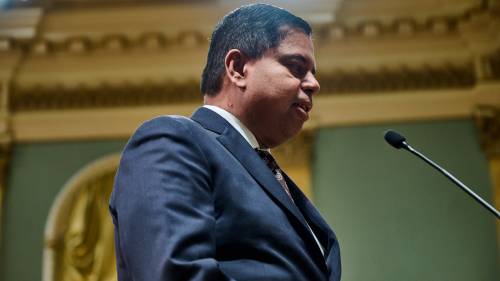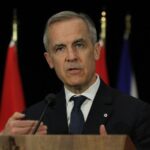In a revelation that has sent shockwaves through Ottawa’s political corridors, documents have emerged showing Public Safety Minister Dominic LeBlanc wrote letters supporting a suspected member of a terrorist organization. The correspondence, obtained through investigative channels, raises serious questions about judgment and security protocols at the highest levels of Canada’s government.
The letters, penned on official ministerial letterhead, appear to vouch for an individual who intelligence agencies had flagged for potential connections to designated terror groups. Sources familiar with the matter indicate the minister provided character references without conducting thorough background checks—a stunning oversight for someone tasked with overseeing Canada’s national security apparatus.
“The juxtaposition couldn’t be more troubling,” said Dr. Catherine Forrest, security analyst at the Canadian Institute for Strategic Studies. “We have a Public Safety Minister—whose portfolio includes counterterrorism—apparently advocating for someone intelligence services had red-flagged. This represents either a catastrophic failure of information sharing within government or a concerning lack of due diligence.”
The Prime Minister’s Office has remained conspicuously silent since the documents surfaced yesterday, fueling speculation about internal discord within the Liberal cabinet. Opposition leaders have seized upon the controversy, with Conservative critics calling for immediate parliamentary hearings into what they’ve termed a “security breach of the highest order.”
Records indicate the letters were written approximately 18 months ago, raising questions about who knew what—and when—within government circles. The RCMP has declined to comment on whether this constitutes a potential breach of security protocols, citing ongoing investigations.
Legal experts suggest the minister’s actions, while politically damaging, may not constitute criminal wrongdoing. “The question isn’t necessarily about illegality,” explained constitutional law professor Martin Dubois. “It’s about judgment and the reasonable expectation that cabinet ministers—especially those responsible for national security—exercise extraordinary caution in their official communications.”
The individual at the center of the controversy remains unnamed in public documents, though sources indicate they have ties to organizations that have appeared on Canada’s terror watch list since 2018. Immigration experts note that ministerial support can significantly influence security clearance decisions, potentially allowing flagged individuals to bypass standard security protocols.
“This isn’t just a political embarrassment—it potentially undermines the integrity of our entire security framework,” said former CSIS director Elaine Thompson. “If ministers can override security concerns through personal intervention, what’s the point of having intelligence agencies conduct thorough background checks?”
As Parliament resumes next week, this controversy is expected to dominate political discourse, with opposition parties already preparing formal inquiries. The incident raises fundamental questions about ministerial accountability: in a system where cabinet members wield significant influence, what safeguards exist to ensure national security isn’t compromised by political considerations?
The scandal emerges against a backdrop of increasing concerns about foreign interference in Canadian institutions and growing global terrorist threats. As Canadians absorb this troubling development, many are left wondering: if our security ministers can’t be trusted to uphold basic protective measures, who ultimately safeguards our national interests?

























